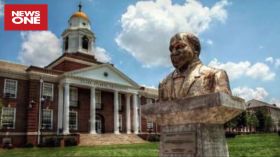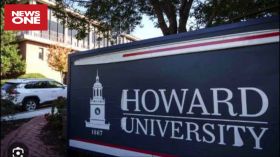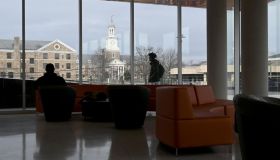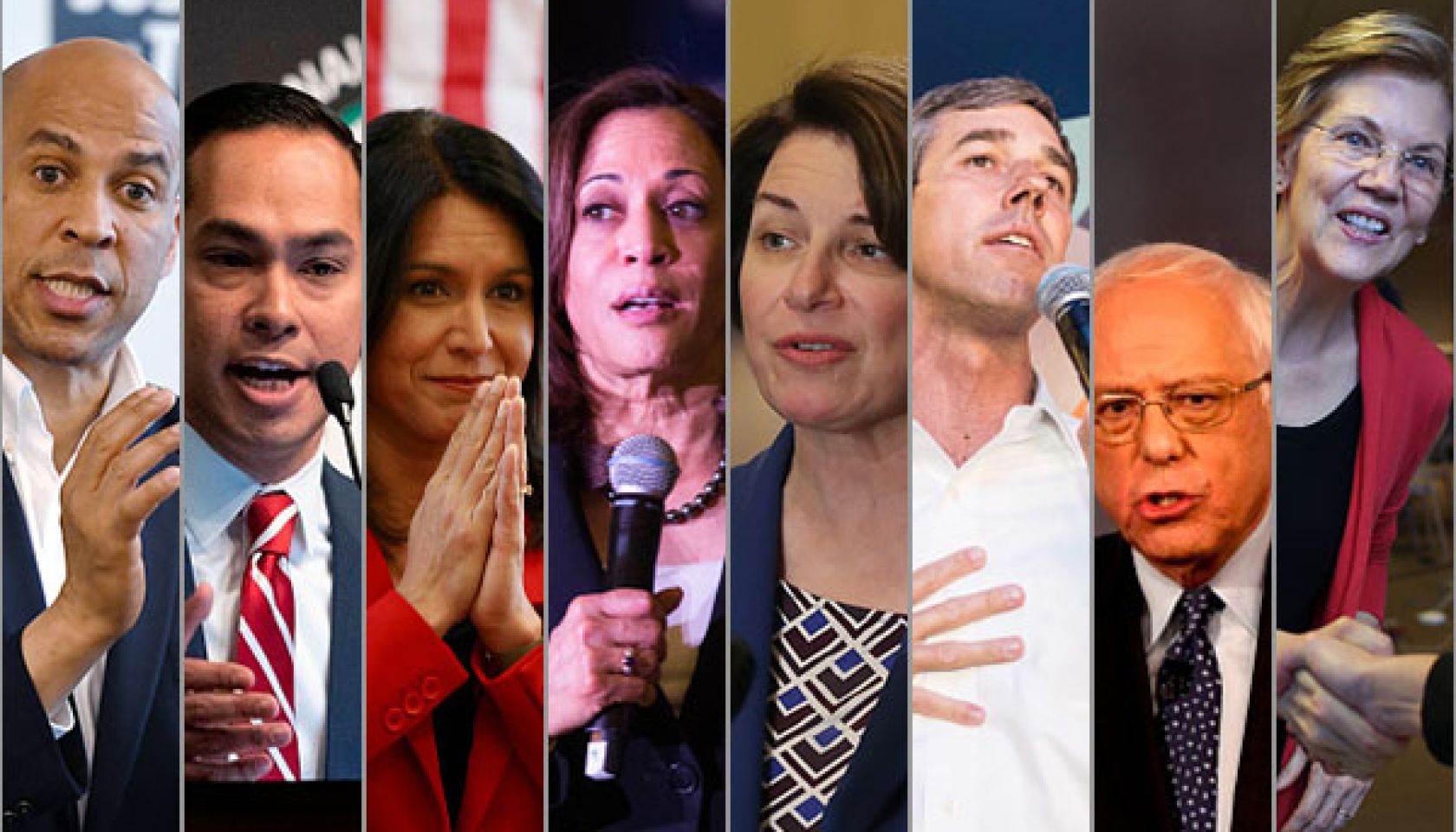HBCU Presidents’ Turnover Rate: Texas Southern Firing Is Latest Example
Texas Southern Firing Draws Attention To HBCU Presidents’ High Rate Of Turnover
The firing of the now-former president of a prominent historically Black college in Texas has drawn attention to what appears to be an increasing turnover rate among leadership at HBCUs in recent years.
MORE: The One Story: The Changing Face Of HBCU Leadership
Dr. Austin Lane’s employment with Texas Southern University (TSU) officially ended on Thursday when he and the TSU board of regents “mutually agreed” to part ways with a whopping buyout worth nearly $900,000, including $100,000 for “emotional distress, damage to reputation and mental anguish,” according to details from the settlement that made no reference to the admissions scandal alleged by the board of regents when it voted to fire him earlier this month. Lane has maintained his innocence throughout it all and refuted the claims with a thorough 8-page response in no uncertain terms to his firing.
Lane’s termination in Houston came less than a week before the president of Jackson State University resigned after he was arrested in a prostitution sting not affiliated with the HBCU in Mississippi.
While William Bynum Jr.’s departure from Jackson State and Lane’s firing from TSU were unrelated, they did have one major thing in common: They each contributed to an apparent high turnover rate among HBCU presidents in a troubling trend that has major implications of instability on campuses specifically designed to help foster the next generation of Black college graduates.
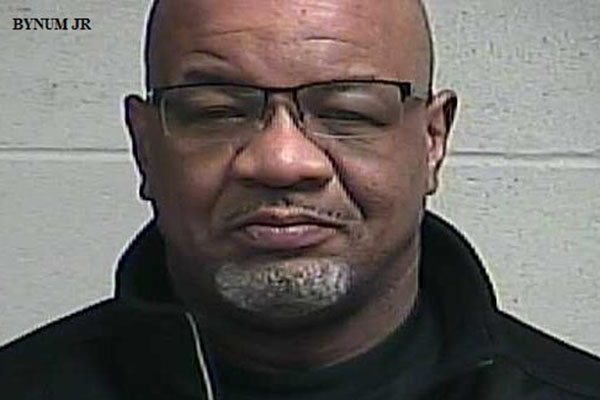
Pictured: William Bynum Jr.’s booking mugshot | Source: Clinton Police Dept.
According to the United Negro College Fund, “the nation’s 106 HBCUs make up just 3 percent of America’s colleges and universities, yet they produce almost 20 percent of all African American graduates and 25 percent of African American graduates in the STEM fields of science, technology, engineering and mathematics — the critical industries of the future.”
Findings by a professor at a predominately white institution (PWI) who has conducted extensive research into the high turnover rate among college presidents seemed to suggest that Lane’s experience at TSU was not a rare occurrence.
“When you get right down to it, the relationship with the board—and the extent to which the board is separate from campus, and doesn’t necessarily have a full appreciation for the different views that may exist on campus—that disconnect puts presidents in an incredibly difficult position,” Michael Harris, a professor at Southern Methodist University, told the Atlantic last year.
That assessment seemed to match up with what happened with Lane, who was TSU’s third president in the last two decades and 12th overall. TSU Board of Regents member Ron Price was one of the lone voices who did not want to fire Lane so as not to “embarrass a Black institution,” he told Roland Martin on a recent episode of his digital news show, “Roland Martin Unfiltered.” Price said the decision to fire Lane was based on “a personality issue” and not necessarily job performance, calling the move one of “the craziest things I’ve ever seen in my life.” See his comments below at around the 58-minute mark.
Data reported by the HBCU Digest website showed that Black colleges were being disproportionately affected by consistent firings and hirings of school presidents. That was true for Lane and Bynum, who each had less than five years leading their respective institutions, a figure that is below the national average of nearly six years. While both TSU and Jackson State have named interim presidents, it was unclear if those newly appointed individuals would stay in place or if (and when) new leadership would be brought in, again.
In fact, there have been at least seven HBCUs that have experienced multiple presidents over the past three years and 10 in the last two years. That included Alcorn State University and Elizabeth City State University, both of which named their fourth presidents since 2013.
Hampton University President William R. Harvey, who has led the HBCU in Virginia since 1978, was one of the rare exceptions to what’s becoming all but a rule on Black college campuses
Not only does the high rate of leadership turnover at HBCUs threaten to provide instability on-campus, but it could also affect schools’ bottom lines. Johnny Taylor, the president and CEO of the Thurgood Marshall College Fund, told the Diverse Issues in Higher Education website that such high turnover prompts the larger philanthropic community — on which many colleges depend, not just Black schools — to “question the wisdom of investing” in HBCUs as a whole.
In the book, “Effective Leadership at Minority-Serving Institutions,” William J. Broussard wrote that “transient” presidencies can also often affect “the lives and careers of senior-staff administrators” who are usually part of a package deal with new hires and appointees.
Obvious additional collateral damage caught in the crossfire of college bureaucracy affected by changing leadership is, of course, the student body as well as alumni.
In TSU’s case, Lane’s significant accomplishments during his brief tenure there cannot be overlooked. They included exceeding enrollment goals, building new facilities on campus, putting effective fundraising measures in place and successfully bringing a presidential debate there last summer. Those facts were not lost on TSU’s students.
Aaliyah Ford, a senior journalism major at TSU who has been covering Lane’s firing for the school paper, described the ousted president as being “pro-student.” She told NewsOne during a recent phone conversation that Lane had been instrumental in helping her remain enrolled in school during a period of personal and financial hardship as she grappled with funding her education while her mother battled brain cancer back home in Oklahoma City.
“I remember reaching out to him and [TSU was] able to give me more Pell Grants,” Ford recalled. The 21-year-old scheduled to graduate in May said Lane has “given so many scholarships to students that need it.”
One of the characteristics of HBCUs that differ starkly from PWIs is the intimacy of the mainly smaller Black college campuses that allow students to get up close and personal with high-ranking members of the administration. Ford said that was true about Lane at TSU.
“He’s like a dad to all of us,” she said.
SEE ALSO:
Convicted Grifter Rod Blagojevich Compares Himself To Nelson Mandela: ‘I Am A Political Prisoner’
‘Misfit Black Girls’? Latest Misogynoir Attack Aims At Bernie Supporters
